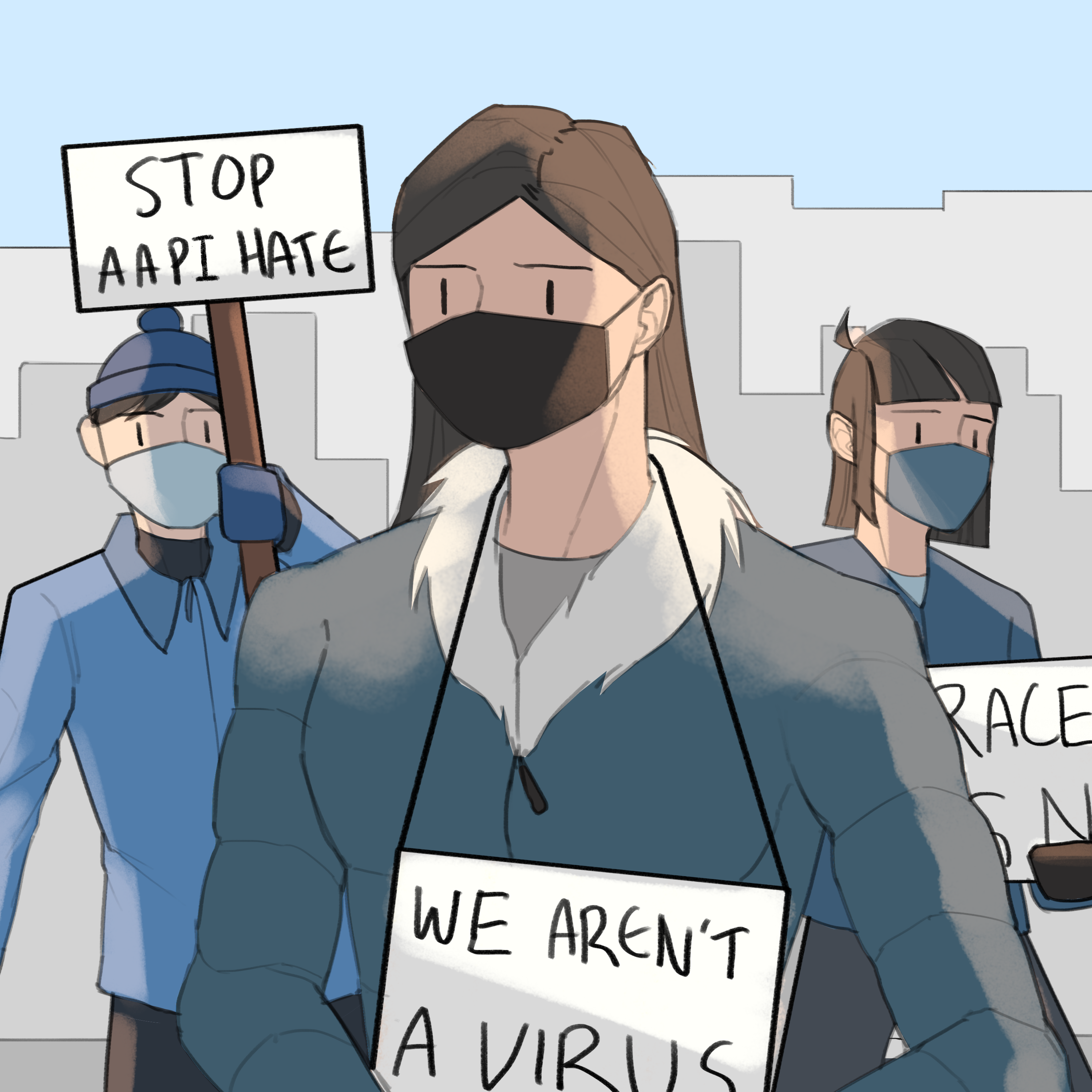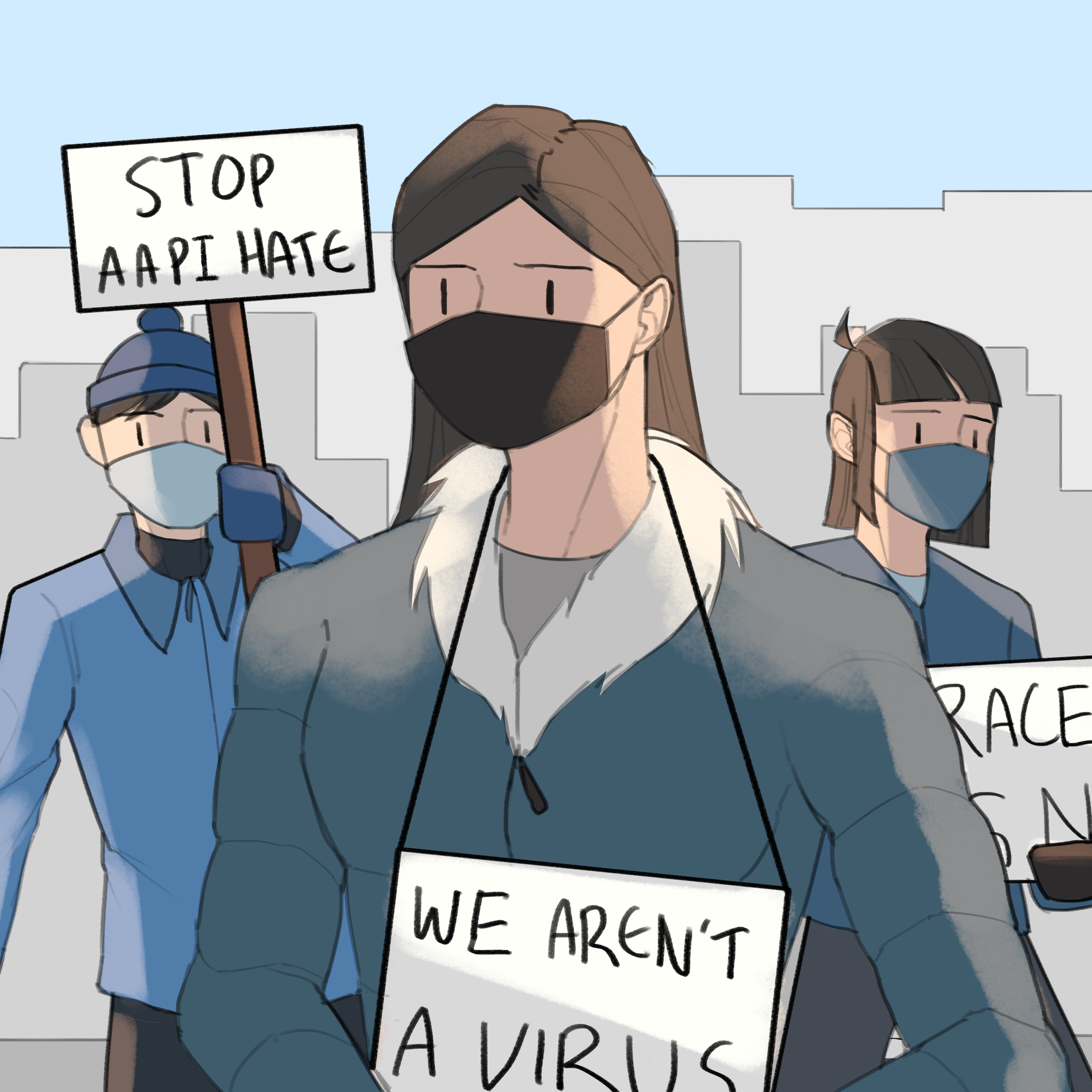

Since the World Health Organization declared COVID-19 a pandemic on March 11, 2020, the number of anti-Asian hate crimes has surged by as much as 150% in major U.S. cities such as New York, Los Angeles and San Francisco. Individuals and Asian businesses alike have become frequent targets of assault and vandalism. Asian Americans Advancing Justice, a nonprofit civil rights organization, reported more than 3,000 accounts of hate incidents spanning physical, verbal and virtual harassment in the past year.
After the WHO pinpointed Wuhan, China as the origin of the coronavirus, Chinese Americans have been accused of being unsanitary foreigners embodying and spreading the virus. Former President Donald Trump encouraged these racist sentiments by referring to the virus as the “China Virus” and the “Kung Flu” beginning in March 2020.
This prejudiced hostility has spread to the entire Asian community. In early January, two cherry blossom trees that were originally planted in 1994 were found destroyed in Japantown, San Francisco. Holding both historical and cultural significance, this act left many Japanese Americans upset. The community led a crowdsourcing campaign that raised $33,000 to replace the trees.
On March 16, eight people, including six Asian American women, were killed in a shooting at Asian-owned spas in Atlanta, Georgia. Asian Americans are no strangers to racism and discrimination as this act of violence is just one of many they have experienced over the past year.
Junior Lauren Mok, who is Vice President of Asian Culture Club, accredited the differences in cities’ hate incident records to their diversity concentrations and community size.
“[San Mateo is] a lot smaller than Los Angeles and San Francisco,” Mok said. “[Large cities] are spread out and less diverse when you break it down into each neighborhood. [In a small city], there are lots of different ethnic backgrounds and cultures within [one] neighborhood.”
Although xenophobia levels are perceived as significantly lower in San Mateo than in other places, the city is not void of hate. Residents have been verbally attacked, and anti-Chinese messages were graffitied on an Interstate 92 and De Anza Boulevard freeway sign.
“It [brings] a lot of anxiety to my everyday life,” said junior Filipino Club Secretary Parker Guban. “Someone could say, ‘Oh god, you’re Asian. Get away from me.’ Even at school, that happened a lot [at] the beginning of 2020. No one really cared … because it was a joke. … I didn’t notice until recently, [but] it doesn’t seem like it should have been said to me at all.”
In an attempt to bring light to these issues, Burlingame seventh grade student Ashlyn So organized and led the Stand Up for Asians rally in Central Park on Feb. 27.
“There’s so much violence, … and it made me want to do something … to stop it,” So said. “Within a week, [my family and I] were able to start [a] whole rally [with] 300 plus people … [which] shows how much support there is in our community. It makes us become more aware of what’s been going on for many, many years. … It’s finally time to speak out against this.”
Despite growing support from local government officials and students, the rally was met with some defiance.
“A lot of people were honking, which was great to make some noise, but then, while we were marching, a car sped by,” So said. “This white guy had his whole body out of the window, and he told [us] to ‘go f ourselves.’ It gives us the motivation to stop this [hate] even more because in the middle of such a big cause it’s still happening.”
In addition to rallies, the rise in media attention to support the Asian American community has helped decrease fear around confronting discrimination.
“People are starting to utilize their platforms to share their voices [and others are] more willing to listen,” Mok said. “It’s a good start to [making] changes that were much needed.”
On Jan. 26, President Joe Biden signed a memorandum to condemn the use of derogatory COVID-19 monikers and provide more accessible resources for Asian Americans. In California, Gov. Gavin Newsom budgeted $1.4 million to fund a hate-tracking and reporting site called Stop Asian American/Pacific Islander Hate. On both the local and national scale, steps are being made to address the ongoing anti-Asian hate crimes.
